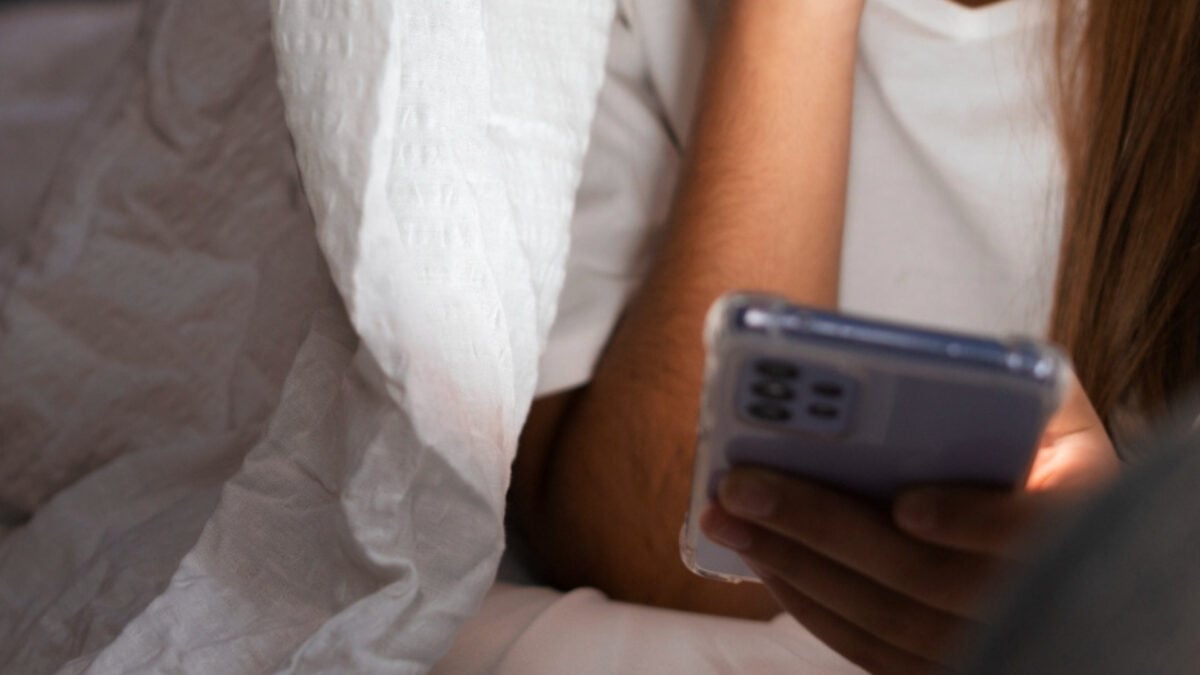Everyone has heard the advice to not use your smartphone before going to sleep—and many of us have ignored it. In fact, you might be reading this very article while in bed. If that’s the case, it might come in handy next time someone nags you about your sleep hygiene.
That’s because a study published this summer in the journal Sleep Health suggests that adults’ nightly bedtime screen use might not be as detrimental to sleep as previously believed. While further research is needed to confirm these unexpected results, the study highlights the enduring uncertainty about the consequences of our smartphone addictions.
Bedtime screen use
The researchers investigated the self-reported bedtime screen use (using screens in bed or within an hour of bedtime) and sleep health of over 1,000 adults in Canada. More than 80% reported being on screens during bedtime in the past month, and almost half reported bedtime screen use every night. Researchers classified the participants into three types of bedtime screen users: occasional (less than once a week), moderate (one to four times a week), and regular (5 or more times a week).
Notably, “after accounting for biological sex, age, and income, both occasional and regular screen users reported the best overall sleep health,” the team wrote in the study. Occasional bedtime screen users had the highest sleep regularity and sleep satisfaction, and regular bedtime screen users had the best sleep timing and daytime alertness. Moderate users reported the worst sleep health.
It’s worth noting that participants’ self-reported claims about sleep health might not be as accurate as researchers physically tracking their sleep in a lab. Nonetheless, these results seem to challenge findings from previous studies. For example, in a 2021 paper, researchers write that “screen exposure, especially near bedtime, directly leads to poor sleep quality.” A 2023 paper on medical students in Egypt reported a remarkably greater occurrence of poor sleep quality among smartphone users at bedtime. A 2022 study explains that smartphone screens emit blue light, which can impact sleep quality.
However, “the previous coverage of blue light has not factored in age, timing and intensity of the blue light exposure when making sweeping generalizations about this research,” Colleen Carney, a co-author of the study and director of the Sleep and Depression Laboratory at Toronto Metropolitan University, said in a university statement. “There may be reason to be cautious about excessive blue light exposure in the evening for teens as puberty increases light-sensitivity. As we age, we are not as light sensitive and there are age-related effects of the eye that make light less disruptive.”
Test it out for yourself
Adults’ sleep health might also be impacted by how one uses a smartphone or similar device before bed, not just when. For example, some apps can help relax users. On the other hand, others can heighten emotions that hinder sleep, according to the statement.
“The association between bedtime screen use and sleep health appears complex as bedtime screen use frequency, the sleep health dimension measured, and biological sex can all influence this relationship,” the researchers admitted in the new study. “More research is needed to understand the sleep health and bedtime screen use association and moderators of this relationship in adults.”
Adults can test out the effects of bedtime screen use on their sleep directly by monitoring their current sleep for one week and then monitoring it for a second week during which they don’t use devices at least one hour before bedtime, according to Carney.
“If you sleep and feel better with an earlier bedtime for your device, make it a new habit. If you don’t notice a difference, like the people in this study, the device is not the problem we have been led to believe,” Carney concluded, though this might seem like a simplistic conclusion to some.

